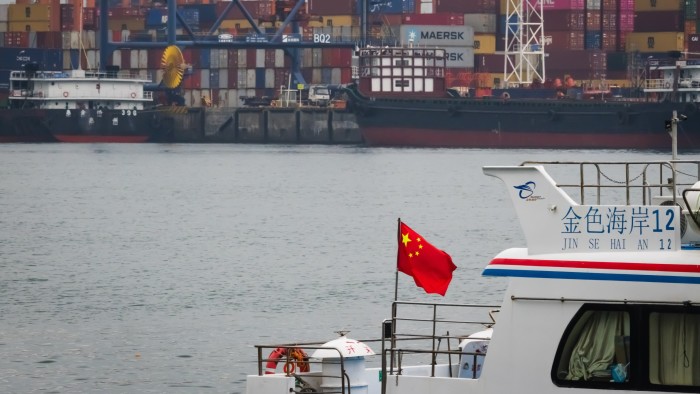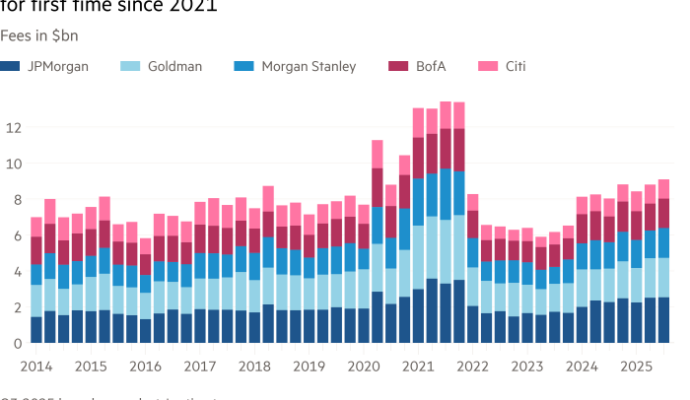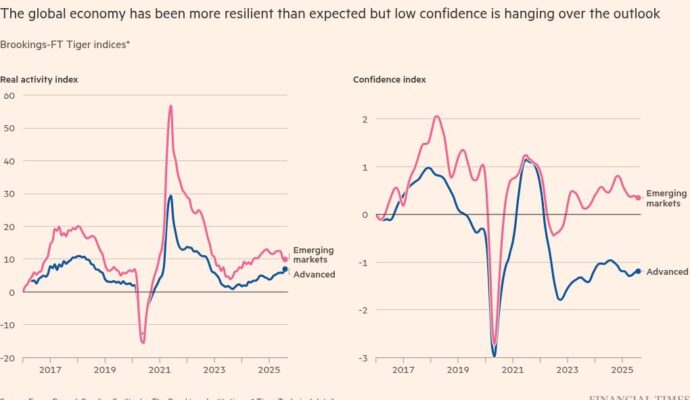
Unlock the Editor’s Digest for free
Roula Khalaf, Editor of the FT, selects her favourite stories in this weekly newsletter.
China will impose fees on US-owned ships docking at Chinese ports, the latest in a series of retaliatory moves against the Trump administration that are likely to escalate trade tensions between the world’s two biggest economies and military superpowers.
Beijing has fired a volley of trade measures at Washington this week as it seeks leverage ahead of a face-to-face meeting between Presidents Donald Trump and Xi Jinping expected to take place in South Korea this month.
From October 14, ships owned by US companies or individuals must pay Rmb400 ($56) a tonne to dock, China’s transport ministry said on Friday.
The rate, which also applies to foreign-owned vessels made in the US, will increase by Rmb240 each year to Rmb1,200 a tonne by April 2028.
The fees and schedule broadly mirror rules announced by the US in April, which come into effect next Tuesday. The US is requiring China-built vessels docking at US ports to pay $18 a tonne or $120 per container discharged. The US rates will also increase over three years.
Beijing’s state-owned Global Times newspaper warned this week that China would take “necessary” and “far-reaching” countermeasures against foreign actions “targeting Chinese operators, vessels or crew engaged in international maritime transport and related services”.
The US embassy in Beijing did not immediately comment.
The move came a day after China’s commerce ministry unveiled new export controls on rare earths and related technologies.
They marked the first time Beijing deployed its own version of a so-called foreign direct product rule, a measure used by the US to sever China’s access to some semiconductor-related products through third countries.
Also on Thursday, Beijing announced new restrictions on shipments of some battery anodes and on lithium cathodes and precursors as well as equipment for making batteries.
Earlier on Friday, the Financial Times reported that China had stepped up enforcement of its controls on chip imports, as Beijing seeks to wean the country’s technology sector off US products such as Nvidia’s artificial intelligence processors.
The expanded export curbs on rare earths and batteries highlight China’s sweeping control over the supply chains of critical materials, components and technologies that underpin large swaths of global manufacturing, including the car and defence sectors.
Jens Eskelund, president of the EU Chamber of Commerce in China, said the latest rare earths restrictions would “add further complexity to the global supply chains” by widening the scope of items that export controls apply to and by introducing curbs over the use of related technologies outside China.
He added that the “most immediate concern” regarding export controls was the backlog of export licence applications still awaiting approval.


